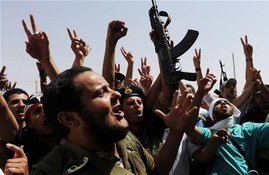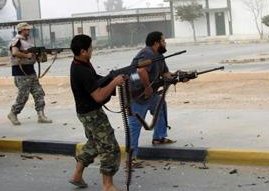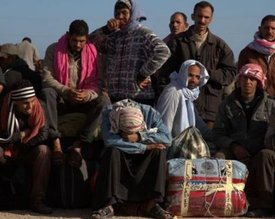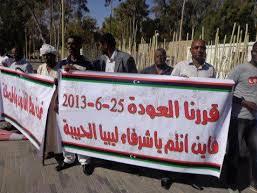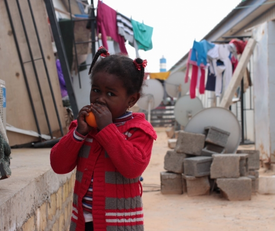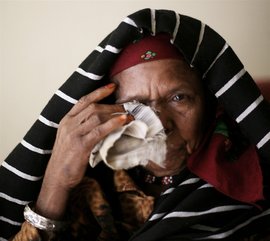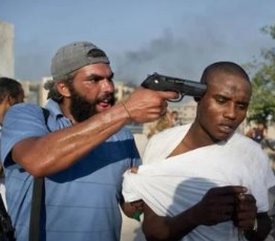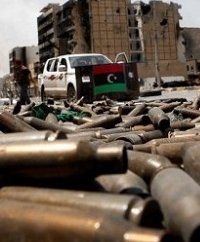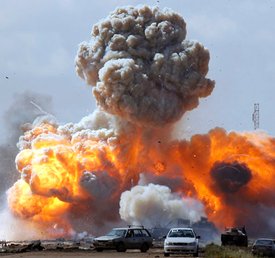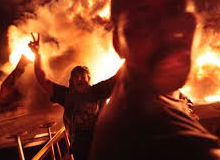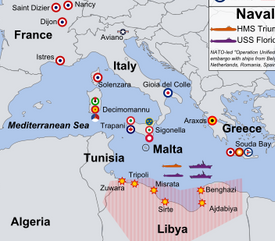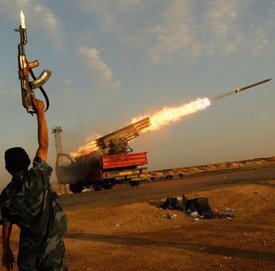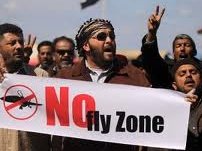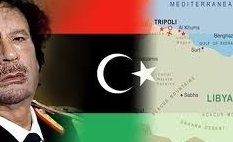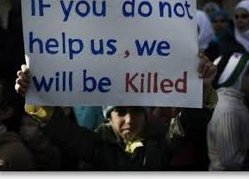Tawergha Foundation
The power of social media is
it forces necessary change.
News & Media
We have collected near to a thousands news items and nearly three hundred official reports on crimes agains humanity commited against the people of Tawergha in Libya over the last 8 years.
This page contains the links to all the news items: Tawergha News Items Database
2011 - 2012 - 2013 - 2014 - 2015 - 2016 - 2017 - 2018 - 2019
This page contains the links to all the official reports: Tawergha Official Reports Database
2011 - 2012 - 2013 - 2014 - 2015 - 2016 - 2017 - 2018 - 2019
2018-02-27 HRW states ICC should investigate
Armed groups and civilian authorities in the Libyan coastal city of Misrata are blocking thousands of people from the town of Tawergha from returning to their hometown after seven years of forced displacement.
Two men have died following strokes since February 1, 2018, in the deteriorating conditions for families stranded in makeshift desert camps that lack adequate health facilities.
HRW stated the International Criminal Court (ICC) prosecutor, Fatou Bensouda, should investigate those implicated in possible crimes against humanity against the Tawergha community, as part of her continued efforts to address ongoing grave abuses in Libya.
2016-01-09 3 Killed & 7 Wounded in Rocket Attack
Three rockets struck the Tawergha IDP Red Crescent Camp in Benghazi, killing three civilians and wounding seven others, including two children.
At least one rocket struck the adjacent Istijaba Camp, causing material damage but no casualties. There is no military or militia presence in
either camp, the witnesses said.
“Firing rockets into displaced persons’ camps with no military present shows utter disregard
for civilian lives. Armed forces and militias need
to do their utmost to protect civilians and ensure they are out of harm’s way.”said , deputy Middle East director.
2015-12-02 Human Rights Watch 2015 Report
Based on visits in September 2015 to four detention facilities in Tripoli and Misrata and interviews with 120 detainees the HRW report included:
"...beatings with plastic pipes, electric cables, sticks & fists, suspended from doors or ceilings for hours & given electric shocks..."
"...incarceration of thousands of detainees who are being denied their basic rights for four years and counting..."
Children detainees as young as 14 years old are subjected to torture and other ill-treatment.
2015-09-11 Misrata & Tawergha Joint Committee
A meeting between Joint Committee Misrata & Tawergha took place on 11 September 2015 in Tunisia under the auspices of the United Nations Mission.
The members determined to stick to what was decided upon at the previous meetings & agreed to:
- Discussed the victims file as part of a strategy to solve the problem of the return of the people of Tawergha to their city.
- Develop an action plan to redress the damage to the victims in terms of the inventory and assessment of the damage ratios and develop a mechanism in this regard.
- Continue working togehter to resolve the file of prisoners and civil registration and for all the inhabitants of Tawergha documents in the context of confidence-building measures.
The Joint Commission confirmed its support for political dialogue and the formation of the national unity government and established the agenda for the next meeting.
Human Rights Watch 2015 Report
The displaced from Tawergha continued to seek safety and shelter in makeshift camps and private housing in many areas, but they remained subject to attack, harassment, and arbitrary detention by the militias.
Libyan authorities and militia commanders failed to end the attacks or hold those responsible to account.
The forced displacement of residents of Tawergha amounts to a crime against humanity.
Tawerghans being killed again by Misrata Militias
In early October, militias of Misrata (Fager of Libya) continued targeting many of the young people of Tawergha, especially in western Libya killing at least five people.
Most recently on November 2, 2014 a person named Faraj Akila Juma glitter is believed to have been killed at the camp of Yarmouk, which is controlled by the militias of Misrata (Fager of Libya)
In the previous two months, 3 young people from Tawergha living in Benghazi have disappeared apparently due to kidnapping or murder by militias.
Tawergha Garyounes IDP camp in the crossfire again - 17 Oct 2014
This morning all internally displaced families from Tawergha had to leave the Garyounes IDP camp because of the heavy clashes taking place in Benghazi.
Garyounes has turned into a frontline battlezone between the Libyan militairy forces and the Islamist Benghazi Revolutionaries Shura Council militias and many of the shells have hit the IDP camp.
The Garyounes camp is the largest IDP camp for Tawergha in Benghazi and used to house 393 displaced families.
44 detainees from Tawergha released
In 2012 human rights organizations reported the number of Tawerghan detainees without a conviction held in Misrata detention centers was 1,200 persons.
Misrata has released a number of Tawerghans but also kidnapped dozens others since then.
The release of 44 people was the largest number released at once. Thousand other Tawerghans still remain detained without justice or conviction and are held under appaling circumstances often suffering from torture and ill treatment.
Militia assassinate two activists for Tawergha
Benghazi suffered one of the most deadly assassination operations the city has seen in over two years in which youth activists Tawfik Bensaud and Sami El-Kawafi were murdered. They were only 18 and 17 years old, but giants in Libya’s nascent civil society. Only a few days ago, the Huffington Post published an interview with Tawfik Bensaud, where Tawfik expressed his commitment to the role of youth and civil society to steer Libya through this phase of instability.
Misrata militia attack Tawergha IDP camp killing one
Early in the morning, militias from Misrata attacked the camp of displaced people from Tawergha in Tripoli, Al-Falah area.
The random shooting of people in the camp led to the injury of three Tawerghans.
Five Tawerghans where kidnapped from the camp of which one was executed and four others where later released.
Hand grenade attack injures 8 in Benghazi IDP camp
What at first was thought to be a rocket attack on the Tawergha IDP camp in Benghazi today, turned out to be an exploded hand grenade thrown by an unknown perpetrator injuring eight persons.
During the last couple of weeks the security situation deteriorated in Benghazi as General Heftar took on the terrorists with his Operation Dignity and 550 people from Tawergha had to be re-displaced.
Another Ambassador visits Tawergha IDP camps
American Ambassador Deborah Jones met Tawerghan refugees and council representatives living in one of five Tripoli camps on Saturday.
The last couple of months many Ambassadors have visited the Tawergha IDP camps or invited them to the embassy and promised their countries support to help them with the harsh living conditions and pursue a diplomatic solution for their return home.
The international community won't forget Tawergha
Prime Minister Abdullah Al-tanee meets with Tawergha local council - 23 March 2014
Today the Libyan Prime Minister Abdullah Al-tanee met with Tawergha local council members and discussed the many problems and difficulties the displaced people of Tawergha are facing in the camps and talked about how they could go home.
People of Tawergha asked for the return of their Tawergha municipality rights and hoped the government would give them assistance with the dialogue between the city of Misrata, resolving the issues with the prisoners files who had their salaries suspended and the return of the files of students whom are studying in colleges and universities.
Misrata and Tawergha justice & reconciliation talks
This Monday there was a second meeting between a department from Misrata and the Tawergha Local Council.
Mohamed Ibrahim who leads the Misrata department dedicated to solve the issues between the two towns, gave us a heads up last month about the positive steps being taken to communicate directly with the Local Council members and it looks like they are achieving results.
Some of the agreements made, contain the release of more prisoners from Tawergha and speeding up trials for indicted individuals and the handing over of student files and other documentation which Misrata has held on to as leverage for the last three years.
There are proposals regarding the return to Tawergha, which are currently being discussed and agreements on more issues are expected within the next few days. The international community is holding its breath and hopes this attempt for obtaining justice and reconciliation will achieve the success story Libya is desperately in need of.
Misrata officials kill another Tawerghan after torture
Misrata officials have tortured and murdered yet another prisoner from Tawergha today.
He was kidnapped and taken to the Jaweya Musrata prison and beaten on various parts of his body.
After the beatings the prison guards executed him by shooting him in the head above his right eyebrow with the presence of the prison director.
The Libyan justice department has not prosecuted a single perpetrator although hundreds of Tawerghans have been tortured and killed the last couple of years.
Janzur IDP camp for Tawarghan refugees on fire
Another fire has ripped through the Janzur Tawarghan IDP camp in the capital of Libya today at 11 am. The blaze was under control four hours later causing damage but without major injuries.
The incident is under the investigation by the Tawarghan Local Council.
The people of Tawergha have been living in the Libyan IDP camps for years and their conditions are appaling. Although the Libyan government has made many promises to assist, they are still not allowed to go back home and basic life in the IDP camps is unbearable.
Human Rights organizations report on Libya
One day after the Libyan National Human Rights Organization blasts the government on the many violations and the none existent actions to prevent them, the HRW World Report 2014 on Libya finishes the job; The Libyan government and militias have failed their citizens.
HRW and NCCLHR on Tawergha:
"Militias mainly from Misrata continued to arbitrarily detain, torture, harass, and kill Tawerghans in custody...more has to be done to combat the “inhuman conditions” in camps for internally displaced minorities."
Second major fire in Tawergha refugee camp
A New Year’s day fire at the camp on Tripoli’s Airport Road housing Tawerghan refugees has added to their misery just days after heavy rains caused major flooding in the camp.
According to one of the residents, 18 accommodation units housing 53 people were burned down as a result of what is believed to have been an electrical fault.
This was the second major fire in the camp where the refugees have been living for over two years. With harsh winter weather, conditions there were now worse than ever.
UK ambassador asks Misrata for mercy for Tawergha
The British ambassador brought up the issue of the Tawerghans’ return to their town.
Aron’s visit to the Tawerghan IDP camp, he said, was shocking. The camp had been badly flooded in recent days. Earlier in the year, they had been planning to march back to Tawergha, but they had been persuaded not to do so in the hope that their situation would be improved. In fact, we were told, it has got worse”. Their conditions were appalling.
The Misratans said that they thought that this was for the government to deal with, as part of the process of national reconciliation.
Tawerghan refugee camps flooded
The flood damage has worsened already substandard accommodation at the five camps and, now facing a third winter, all the residents are concerned about is returning home.
Entire families of up to 15 people occupy single rooms, which serve as both a living and sleeping space.
Many people are suffering from severe health problems, and have no money for treatment or can't afford food. Several children have nasty sores on their skin, and there are worries how these would be able to heal in the present conditions in the camp.
Misrata militia attack refugee camps
The Libyan government should urgently provide protection for the four major camps of displaced people from Tawergha in Tripoli after militias attacked one of them on November 15 and 16, 2013. The two militia attacks killed one camp resident and injured three others.
The forced displacement of roughly 40,000 Tawerghans, as well as arbitrary detentions, torture, and killings, are widespread, systematic, and sufficiently organized to be crimes against humanity, Human Rights Watch said. The UN Security Council should condemn these crimes.
Misrata militia shot 460 & killed 43 protesters today
Friday's bloodshed began when militiamen from the city of Misurata fired at the protesters demanding their eviction from the capital after they had fought rivals for control of city districts.
A Reuters reporter saw an anti-aircraft cannon firing from the "Gharghur brigades'" gated compound into the crowd as protesters chanted:
"We don't want armed militias!"
Misrata militia attack Tripoli
The second outbreak of street fighting within days shows how the government is struggling to contain militias which helped overthrow Muammar Gaddafi two years ago but kept their guns after the NATO-backed uprising.
A security source told Reuters that a heavily-armed group from the central city of Misrata had entered the capital in the evening to take revenge for the killing of one of its fighters in a smaller shootout in Tripoli on Tuesday.
Tawergha join election boycott
The acting Tawergha Local Council has called on the town’s displaced inhabitants to boycott the elections to the Constitutional Committee as well as the planned municipal poll in protest at what it says is the government’s lack of interest in their situation, particularly their return home.
They had planned to return home in June but, following appeals from the Prime Minister, the Grand Mufti, the Council of Elders and others to delay the return after threats from Misrata that it would prevent it by force if necessary, they agreed to hold off.
In early May, the Tawerghans, the majority of whom have been living in refugee camps since being expelled from the town by Misratan forces in 2011, announced that they would return peacefully on 25 June.
In a statement delivered to the Prime Minister’s office, Abdel Rahman Mahmoud pointed out that the people of Tawergha have been displaced for more than two years with many living in conditions that amounted to torture and deprived them of dignity.
Tawergha threaten unilateral return
About 1,300 people from Tawergha are detained, missing, or dead, according to Human Rights Watch, which said earlier this month that crimes committed against the Tawerghans "may amount to crimes against humanity and could be prosecuted by the ICC"
Now Tawergha community leaders say they are fed up waiting for reconciliation to start, and in June this year say they will leave their 20-odd camps - mainly in Tripoli and Benghazi - to return home.
"The life which we live now, it is no different from dying, and so we prefer to die at home"
Militiamen from Misrata shot 31 & killed 12 refugees
Militiamen from the coastal city of Misrata arrived, searched the camp and attempted to remove several young men.
When the unarmed refugees protested, the militia opened fire, killing at least five people.
Former Tawergha residents marched through Janzour later that day in protest, but were again fired upon. Two Tawerghan children, Mohammad Attia Saleh and Freih Abdel Moula, were among those killed.
The report puts the number of dead throughout the day at 12, with 31 wounded.
The murder brigades of Misrata
More than 100 militia brigades from Misrata have been operating outside of any official military and civilian command since Tripoli fell in August.
Members of these militias have engaged in torture, pursued suspected enemies far and wide, detained them and shot them in detention, Human Rights Watch has found.
The NTC should take control of the many makeshift detention facilities, expedite the return of displaced Libyans, and ensure the investigation, trial and punishment of wrongdoers acting in the name of vengeance.
NATO enabling ethnic cleansing & genocide
Tawergha was taken by the rebels on 13 August in an assault which was closely coordinated with NATO and featured the use of aerial bombing and of heavy weaponry against the town.
The demonisation of black people has led to widespread atrocities including lynchings and beheadings in which the highest echelons of the National Transitional Council have been complicit.
So is NATO actually “protecting civilians” – or is it rather supporting rebels, some of whom who intend to harm dark-skinned Libyans and ethnically cleanse areas over which they take control?
Ethnic hatred rooted in battle for Misrata
Before the siege, nearly four-fifths of residents of Misrata's Ghoushi neighborhood were Tawergha natives. Now they are gone or in hiding, fearing revenge attacks by Misratans, amid reports of bounties for their capture.
The hatred of Tawergha stems from witnesses who say loyalist soldiers were accompanied by volunteer fighters from Tawergha in an assault against Misrata and surrounding areas on March 16 to 18.
Ibrahim al-Halbous, a rebel commander leading the fight near Tawergha, says all remaining residents should leave once if his fighters capture the town. "They should pack up," Mr. Halbous said. "Tawergha no longer exists, only Misrata."
It is unclear how many families still live in Tawergha, which has turned into staging grounds for government troops.
Dozens of civilians have been killed in NATO airstrikes
UN Security Council Resolution 1973 called for using "all necessary means" to protect civilians and civilian-populated areas from attack, imposing a no-fly zone.
NATO’s military actions in Libya has to comply with the rules of international humanitarian law applicable in international armed conflict. IHL contains the rules and principles that seek to protect anyone who is not directly participating in hostilities
Dozens of civilians have been killed in NATO airstrikes on private homes in residential and rural areas where Amnesty, UN experts, other international NGOs and
journalists found no evidence of military objectives at the strike locations at the time of the strikes.
NATO admitted today that it had been bombing inside the city of Misrata for the last three weeks using “certain weapons” which differentiate between pro-and anti-Gadaffi fighters.
None of the assembled press corps asked the obvious question – in an urban environment how do bombs differentiate between the warring sides and civilians?
The bombing of the city of Misrata by NATO forces should be condemned by human rights organisations.
NATO enforces Libyan no-flyzone
On 24 March, NATO ambassadors agreed that NATO would take command of the no-fly zone enforcement, while other military operations remained the responsibility of the group of states previously involved. The decision was made after meetings of NATO members to resolve disagreements over whether military operations in Libya should include attacks on ground forces.
US Secretary of Defense Robert Gates explained that "a no-fly zone begins with an attack on Libya to destroy the air defences ... and then you can fly planes around the country and not worry about our guys being shot down. But that's the way it starts."
Rebel stronghold of Misrata faces heavy bombing
Forces loyal to Muammar Gaddafi have bombarded the rebel-held city of Misrata with tanks and heavy artillery which began hours after the UN Security Council passed a resolution endorsing a no-fly zone and military attacks on the Libyan regime's forces.
Misrata has been under siege by Gaddafi's forces for days. Water supplies have been cut off, there are frequent power cuts and communications are difficult.
Tariq, a doctor from Misrata who now lives in Britain said relatives in Misrata had told him "there is heavy bombardment there, explosions inside the city,". "They cannot send out any ambulances. They think it's artillery and tanks, shelling, not air strikes. It's very worrying," he said.
Security Council Approves ‘No-Fly Zone’ over Libya
Demanding an immediate ceasefire in Libya, including an end to the current attacks against civilians, which it said might constitute “crimes against humanity”, the Security Council this evening imposed a ban on all flights in the country’s airspace — a no-fly zone.
Adopting resolution 1973 (2011) by a vote of 10 in favour to none against, with 5 abstentions (Brazil, China, Germany, India, Russian Federation), the Council authorized Member States, acting nationally or through regional organizations or arrangements, to take all necessary measures to protect civilians under threat of attack in the countr.
Gaddafi troops on the road to Benghazi
Leading Gaddafi's counterattack are the Hamza, Hosban and Khamis Brigades.
Following the recapture of Brega and taking of Ajdabiya, the Khamis Brigade will cut off Benghazi and secure the Egyptian border.
The opposition and the international community must hope that Gaddafi's counter-attacks lose momentum, otherwise the rising will have been for nothing.
Febr 17 revolutionary rebels need assistance now
In a welcome turn for the rebels, who have asked for military assistance, including airstrikes, from Western powers, Secretary of State Hillary Rodham Clinton met with unnamed opposition leaders.
The developments came against a background of quickening diplomatic debate over possible outside help for the Libyan rebels, who have made increasingly anxious pleas for intervention that have, so far, produced none.
Libya's day of rage met by bullets and loyalists
Gaddafi supporters clash with protesters in al-Bayda and Benghazi on the second day of unrest in the country.
Opposition activists had designated Thursday as a day of protests because it was the anniversary of the 2006 clashes in Benghazi when security forces killed several protesters who were attacking the Italian consulate.
Regional differences are explained in a February 2008 US diplomatic cable released by WikiLeaks which described Benghazi as "a locus of extremist activity over which government of Libya security services have comparatively limited control".
Find out how you can help today:
- Join us on Twitter to show your support
- Click the 'Send' button for the 'Let them go home' campaign
- Share this website on Facebook to support them
- Add your voice to the Avaaz online campaign
- Donate your old laptop for educational purposes
- Help them through winter by donating a small amount
> Click this "what can I do?" page link <
Official Reports
on Tawergha
Human Rights Watch 2015 Report
"beatings with plastic pipes, electric cables, sticks & fists, suspended from doors or ceilings for hours & given electric shocks"
"incarceration of thousands of detainees who are being denied their basic rights for four years and counting"
Children detainees as young as 14 years old are subjected to torture and other ill-treatment.
Human Rights Watch 2015 Report
The displaced from Tawergha continued to seek safety and shelter in makeshift camps and private housing in many areas, but they remained subject to attack, harassment, and arbitrary detention by the militias.
Libyan authorities and militia commanders failed to end the attacks or hold those responsible to account.
The forced displacement of residents of Tawergha amounts to a crime against humanity.
International Criminal Court (ICC) 2014
The displacement of civilians from Tawergha in the period from August 2011 to April 2014 appears to meet the elements of deportation or forcible transfer of the civilian population as a crime against humanity under Article 7(1)(d) and as a war crime under Article 8(2)(e)(viii) of the Rome Statute.
Amnesty International Report 03 2014
Hundreds of Tawargha men and boys as young as 15 were arbitrarily detained and routinely tortured and
otherwise ill-treated. Many reportedly died under torture. Most displaced Tawargha live in poorly resourced
camps. The Libyan authorities have failed to end forcible displacement and protect the Tawargha from retaliatory
attacks, and perpetrators have not been brought to justice.
Human Rights Watch 2014 Report
Militias mainly from Misrata continued to arbitrarily detain, torture, harass, and kill Tawerghans in custody.
At time of writing, 1,300 people from Tawergha were detained, mainly in Misrata, or unaccounted for.
Since the end of the 2011 conflict, Human Rights Watch has documented repeated attacks, mostly by militias from Misrata, on people displaced from Tawergha living in makeshift camps in Tripoli and elsewhere.
Militias from Misrata have also arbitrarily arrested and harassed displaced Tawerghans, with impunity. The widespread and systematic nature of this ongoing forced displacement amounts to a crime against humanity.
Libya Amnesty International Annual Report 2013
Torture and other ill-treatment remained widespread, particularly in detention facilities controlled by militias, and were used to punish detainees and extract “confessions”. Detainees were especially vulnerable during arrest, in their first days of detention and during interrogation. Many signed “confessions” under torture or duress. Article 2 of Law 38 of 2012 gave legal weight to interrogation records of armed militias, at the discretion of judges.
Many detainees were subjected to sustained beatings with hoses, rifle butts, electric cables, water pipes or belts, often while suspended in contorted positions. Some were tortured with electric shocks, burned with cigarettes or heated metal, scalded with boiling water, threatened with murder or rape and subjected to mock execution. Tens of detainees died in the custody of militias, the SSC and in official prisons in circumstances suggesting that torture contributed to or caused their deaths.
The authorities took no real steps to facilitate the safe return to their homes of entire communities forcibly displaced during the 2011 conflict... Armed militias wrought further destruction in these areas to render them uninhabitable and arbitrarily detained and abused people from these communities, especially Tawarghas.
International Criminal Court (ICC) 2013
Prosecutor Statement 14 November
It is a matter of great concern that thousands of detainees remain in uncertain conditions in the country, with multiple and apparently well-founded allegations of torture and even killings in detention having been reported.
My Office fully shares the concerns of the United Nations that unless this problem is effectively addressed now, it will only escalate with time. It is incumbent upon the Ministers of Justice, Interior and Defence of the State of Libya to speedily ensure that detainees are transferred to proper government-controlled detention facilities where they can be either charged with their due process rights fully respected, or released where appropriate.
Torture and inhuman treatment of prisoners should have no place in the new Libya.
Equally disturbing are the simmering tensions regarding the Tawergha minority issue. These tensions and the prospects for reprisals have the potential to re-ignite violence in the country. It bears stressing that those who seek to defend the revolution and see to it that it succeeds, are at real risk of burying it if they do not take concrete and immediate steps on this issue.
Human Rights Watch Report 2013
Ethnic Cleansing Satellite Analysis
The Libyan government should take urgent steps to stop serious and ongoing human rights violations against inhabitants of the town of Tawergha. The forced displacement of roughly 40.000 people, arbitrary detentions, torture, and killings are widespread, systematic and sufficiently organized to be crimes against humanity.
HRW warns councils of Misrata 2012
You will be held criminally responsible
Human Rights Watch is writing to raise concerns about serious crimes that have been and continue to be committed by armed groups from Misrata, some of them amounting to crimes against humanity. As the civilian and military leadership in the city, we urge you to take immediate steps to halt the commission of these crimes, and to support prosecution of those responsible. We emphasize that senior officials, such as yourself, could be held criminally responsible for ordering these crimes, or for failing to prevent or punish them, by courts including the International Criminal Court (ICC) in The Hague.
A serious matter is the crimes we have documented by Misratan militias against the people of Tawergha, including killings, torture, looting, home destruction and the ongoing forced displacement of some 30,000 people. Some officials from Misrata have publicly said that the people of Tawergha should never return.
The Commission further concluded that the thuwar committed serious violations, including war crimes and breaches of international human rights law, the latter continuing at the time of the present report. The Commission found these violations to include unlawful killing, arbitrary arrest, torture, enforced disappearance, indiscriminate attacks, and pillage. It found in particular that the thuwar are targeting the Tawergha and other communities.
The report indicates that torture is widespread and most frequent immediately after arrest and during the first days of interrogation to extract confessions and other information. The vast majority of the estimated 8,000 conflict-related detainees are also being held without due process.
Some 59,425 persons face a
situation of protracted displacement. These include IDPs from Tawergha.
Asylum Research Consultancy 2013
An entire community is being held hostage to crimes allegedly committed by a few” and that “the onus is now on the government to end this collective punishment by ensuring that Tawerghans can exercise their right finally to return to their homes.
Amnesty International Report 2013 Scapegoats of Fear
Despite some governmental
demobilization and disarmament efforts, many militias, continue to commit serious human rights abuses with impunity, including arbitrary arrests and detention, torture and other ill-treatment and unlawful killings.
Militias in Misrata arbitrarily detained hundreds of Tawarghan IDPs, including women and children, and transferred them to detention in nearby Misrata, where human rights groups reported serious mistreatment and torture. Dark-skinned Libyans were particularly vulnerable to harassment and abuse by militia forces.
Amnesty International Report 2012 Rule of Law or rule of Militias
The new Libyan authorities must publicly acknowledge the scale and gravity of ongoing human rights violations, and condemn those carrying them out, without seeking to justify such actions.
Torture in Misrata detention centres
MSF teams began working in Misrata’s detention centres in August, 2011, to treat war-wounded detainees. Since then, MSF doctors were increasingly confronted with patients who suffered injuries caused by torture during interrogation sessions. Since January, several of the patients returned to interrogation centres have even been tortured again. This is unacceptable. Our role is to provide medical care to war casualties and sick detainees, not to repeatedly treat the same patients between torture sessions.”
Libya’s transition process has been marred by continued lawlessness and violence, including unlawful killings and other serious human rights abuses perpetrated with impunity by militias.

